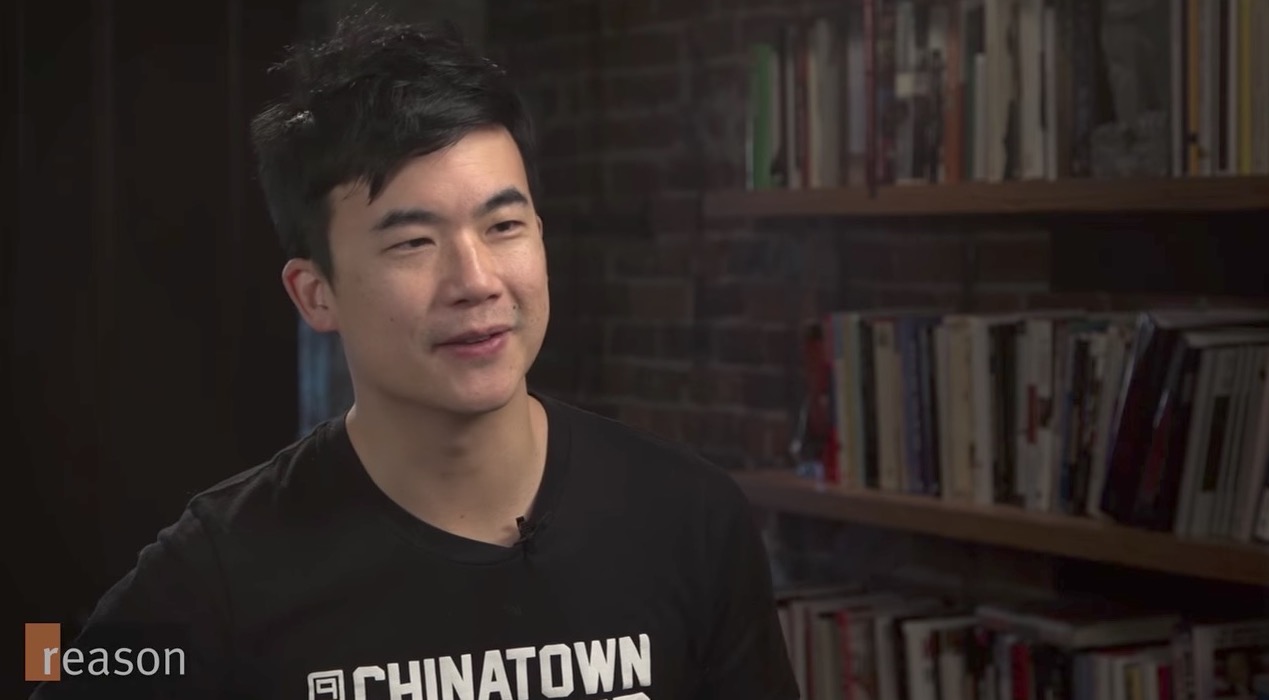Asian-American Band The Slants Wins Right to Trademark “Disparaging” Name

The Supreme Court has ruled in favor of Asian-American rock band The Slants, who can finally register their name after a long fight.
Simon Tam talks about founding the band in the video above, and how after being inspired by seeing Lucy Liu in Kill Bill he decided to stop being the “token” in the music industry and starting an “Asian-American project.” The name, he says, was a kind of way to use the perception that Asians have slanty eyes and make change, but the band faced obstacles trying to trademark their name. He told NPR, “I wanted to change it to something that was powerful, something that was considered beautiful or a point of pride instead.”
Music and provocative band names that push the envelope are nothing new (see: Joy Division naming themselves after the sex slavery wing of a Nazi concentration camp), but Tam’s case is stronger than a quest for edginess. It was an attempt to take a stereotype and reclaim it.
Tam filed a lawsuit after the U.S. Patent and Trademark Office reject their appeal because of the Lanham Act, which claimed the trademark may “disparage … or bring … into contemp[t] or disrepute” any “persons, living or dead.” When taken to the Supreme Court, they ruled unanimously in their favor with Justice Samuel Alito claiming “this provision violates the Free Speech Clause of the First Amendment. It offends a bedrock First Amendment principle: Speech may not be banned on the ground that it expresses ideas that offend.”
In a Facebook post, Tam wrote:
“After an excruciating legal battle that has spanned nearly eight years, we’re beyond humbled and thrilled to have won this case at the Supreme Court. This journey has always been much bigger than our band: it’s been about the rights of all marginalized communities to determine what’s best for ourselves.”
However, some are afraid that this incident could result in a precedent that will influence other trademarks, most notably the NFL’s Washington Redskins whose marks were cancelled on the basis that the name is disparaging to Native Americans. The Hollywood Reporter points out that the office’s treatment of offensive names has been pretty uneven in the past, with some terms making it through and others not.
Still, to equate an Asian-American fronted band reclaiming a term to a football team that makes a caricature out of an entire marginalized race, encouraging offensive references to genocide and historical violence, feels somewhat ridiculous. Sure, there are many within the Asian community who may not like the name, but that’s a very different thing than a group with no affiliation with the disparaged group. It’s the reason why Justin Chon can make a film titled Gook, but a non-Korean doing the same is, at best, highly questionable. How this decision will effect other trademarks, is yet to be seen.
Anthony Kennedy states, “A law that can be directed against speech found offensive to some portion of the public can be turned against minority and dissenting views to the detriment of all. The First Amendment does not entrust that power to the government’s benevolence. Instead, our reliance must be on the substantial safeguards of free and open discussion in a democratic society.”
(via NPR, image: screencap)
Want more stories like this? Become a subscriber and support the site!
—The Mary Sue has a strict comment policy that forbids, but is not limited to, personal insults toward anyone, hate speech, and trolling.—
Have a tip we should know? [email protected]